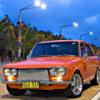Shell Optimax Extreme - 100 Octane
Announcements
-
Similar Content
-
Latest Posts
-
Just trying to get my head around this. At 5psi of boost, you turn on your wmi pump, and then you're using a 3000cc injector, to allow flow upto the actual engine, where you have your 6x200cc injectors and a 500cc injector. If the above is correct, what advantage are you obtaining by having the 3000cc injector blocking flow, is this just incase a line breaks between that injector and the motor you can stop flow immediately? Or are the 6x200cc and 500cc less injectors and just spray nozzle?
-
Welcome! New member myself, but I had an R33 back in 2002. Best advice I could give, based on my experience: if you're running the factory turbo, be very conservative with boost. I made the mistake of just fiddling around with the boost controller and cranking the boost for fun, and the end result was my intake pipes popping off frequently from the constant deluge of oil that was being blown into the recirc by the stressed-out turbo, which itself was siphoning oil from the engine and farting it out both sides of its centre bearing (or something to that effect). If I could do it all again, I would have gotten a new turbo and had a tune dialled in professionally and then just left it alone! Funny you mention the metal shavings in the gearbox, as I had the same thing - the probe plug (magnetic drain plug, essentially) would come out caked with shavings. At least it was doing its job. Not sure if that's just sacrificial wear and part of the deal, or if my gearbox was shagged, but I wasn't abusing it. Enjoy the R33 - they're a dying breed, and if they weren't $35k+ on CarSales in Queensland, I might have picked up one of those again, instead of the 370GT I own now (though I'm loving the 370GT, that big 3.7L V6 just hits different).
-
Howdy folks. I owned an R33 back in 2002, which was thoroughly beyond my capacity (financially speaking) to maintain/insure, so we parted ways in 2004. Fast forward 21 years (to literally yesterday, in fact) and I'm now the proud owner of a 2007 V36 370GT. I'm happily surprised by how much power the VQ37VHR makes, compared to the RB25DET, considering the latter is turbocharged. I had planned to add a turbo at some point but I'm on the fence about whether I'll even need it (though I do love the sudden onset of extra torque). Any other 370GT owners around the traps, I'd love to hear about your experiences with this car (good and bad).
-
Perhaps the answer is... more jacks!* *proper jacks must be used.
-
I NEVER think about using a scissor jack unless there is absolutely no other alternative. f**king things are dangerous, annoying and stupid.
-





Recommended Posts
Create an account or sign in to comment
You need to be a member in order to leave a comment
Create an account
Sign up for a new account in our community. It's easy!
Register a new accountSign in
Already have an account? Sign in here.
Sign In Now